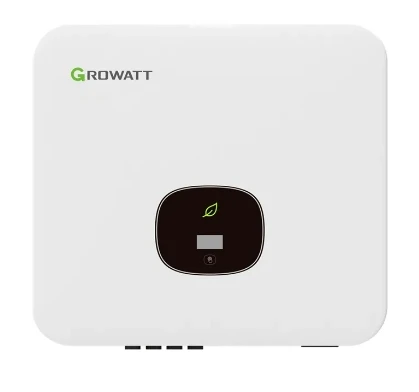inverter
Understanding Inverters The Heart of Modern Power Conversion
In our increasingly electrified world, the role of inverters has become crucial in a myriad of applications. From residential solar energy systems to large-scale industrial power solutions, inverters are fundamental for converting direct current (DC) into alternating current (AC), which is the standard form of electricity used in most homes and businesses. This article explores the significance, types, and advancements in inverter technology.
What is an Inverter?
At its core, an inverter is an electrical device that transforms DC output generated by renewable energy sources like solar panels, batteries, or fuel cells into AC power. AC is the preferred form of electricity for residential and commercial use, as most electrical appliances and the grid operate on AC. Without inverters, harnessing and utilizing renewable energy would be significantly limited.
Types of Inverters
Inverters can be broadly categorized into several types, each designed to cater to specific needs
1. String Inverters Commonly used in solar photovoltaic (PV) systems, string inverters connect multiple solar panels (or strings) in series. They are cost-effective and simple to install, making them a popular choice for residential solar solutions.
2. Microinverters Unlike string inverters, microinverters are installed on each individual solar panel. This allows for optimized energy conversion from each panel, improving overall system efficiency, especially in installations with shading or varied orientations.
3. Central Inverters These are designed for large-scale solar farms, where multiple strings of solar panels feed energy into a single, central inverter. They offer robust performance but require careful planning for optimal installation.
4. Hybrid Inverters These sophisticated inverters can handle both solar energy and battery storage systems, allowing users to store excess energy for later use during peak demand or power outages.
5. Grid-Support Inverters These inverters help stabilize the electrical grid by managing the flow of electricity between the grid and various energy sources. They play a vital role in integrating renewable energy sources into the existing infrastructure.
inverter

Benefits of Inverters
The advantages of inverters extend beyond mere electricity conversion
- Increased Energy Efficiency Modern inverters are equipped with advanced technologies that maximize energy yield. For example, MPPT (Maximum Power Point Tracking) algorithms ensure that the inverter extracts the maximum power from solar panels.
- Enhanced System Longevity Quality inverters come with protective features that safeguard against voltage fluctuations, overcurrent conditions, and overheating, thereby extending the life of the connected energy systems.
- Monitoring and Communication Many inverters are equipped with monitoring technology that allows users to track energy production and consumption in real-time. This data can be crucial for optimizing energy use, reducing bills, and ensuring the system operates at peak efficiency.
- Flexible Applications Inverters are not limited to solar energy; they can be used in various applications such as electric vehicles, uninterruptible power supplies (UPS), and industrial robotics, demonstrating their versatility in modern technology.
The Future of Inverter Technology
As the world shifts towards sustainable energy, inverter technology is continually evolving. Innovations in materials and design, such as the use of wide-bandgap semiconductors, promise higher efficiency and reduced costs. Additionally, as smart grid technologies develop, inverters will play an essential role in facilitating two-way energy flows and enhancing grid resilience.
Furthermore, the integration of artificial intelligence (AI) and machine learning into inverter systems is expected to revolutionize the way energy is managed, making it more efficient and responsive to changes in demand.
Conclusion
Inverters are a critical component in the transition to renewable energy sources and the modernization of electrical systems. With their ability to convert DC to AC power effectively and efficiently, they enable the use of solar energy, support grid stability, and improve overall energy management. As technology continues to advance, inverters will undoubtedly remain at the forefront of the energy revolution, helping to create a more sustainable future for all.
-
Unlocking Energy Freedom with the Off Grid Solar InverterNewsJun.06,2025
-
Unlock More Solar Power with a High-Efficiency Bifacial Solar PanelNewsJun.06,2025
-
Power Your Future with High-Efficiency Monocrystalline Solar PanelsNewsJun.06,2025
-
Next-Gen Solar Power Starts with Micro Solar InvertersNewsJun.06,2025
-
Harnessing Peak Efficiency with the On Grid Solar InverterNewsJun.06,2025
-
Discover Unmatched Efficiency with the Latest String Solar InverterNewsJun.06,2025







